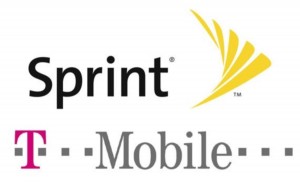 Jumping on the bandwagon of telecommunications industry consolidations the third and fourth largest U.S. wireless operators have agreed to join forces.
Jumping on the bandwagon of telecommunications industry consolidations the third and fourth largest U.S. wireless operators have agreed to join forces.
Sprint and T-Mobile talked about joining forces for a number of years but always put a merger off, with each worried over other deals and concerned over antitrust scrutiny from regulators.
However, recently the two companies have settled on a deal that will be worth $32 billion and likely announced sometime this summer, said people close to the matter this week.
The negotiations are not 100% complete and at some point, a possibility of them falling apart still exists. However, the agreement to the terms represents a huge turning point in the relationship between the two that have contemplated merging for a long time.
The two companies decided the time was right to join forces now since their two biggest rivals AT&T and Verizon, each with over 100 million subscribers continue to become more and more formidable.
The balance sheet for Verizon is stronger since it agreed to take 100% control last year of Verizon Wireless in a deal worth $130 billion with Vodafone.
Verizon currently is the largest U.S. wireless operator and provides landlines as well as business and cable television services.
The second biggest U.S. wireless provider, AT&T, recently acquired DirecTV in a deal worth $49 billion. That gives the company control of the largest U.S. satellite television provider.
At the same time, cable television operators are consolidating. Time Warner Cable and Comcast agreed to a deal worth $45.1 billion that would make the new company the largest cable operator in the U.S. The company would have strong Internet, landline and business services.
Together, the acquisitions and mergers by competitors of T-Mobile and Sprint created a landscape that has marginalized the two companies that are smaller, with each having nearly 50 million subscribers and can only provide wireless service.
